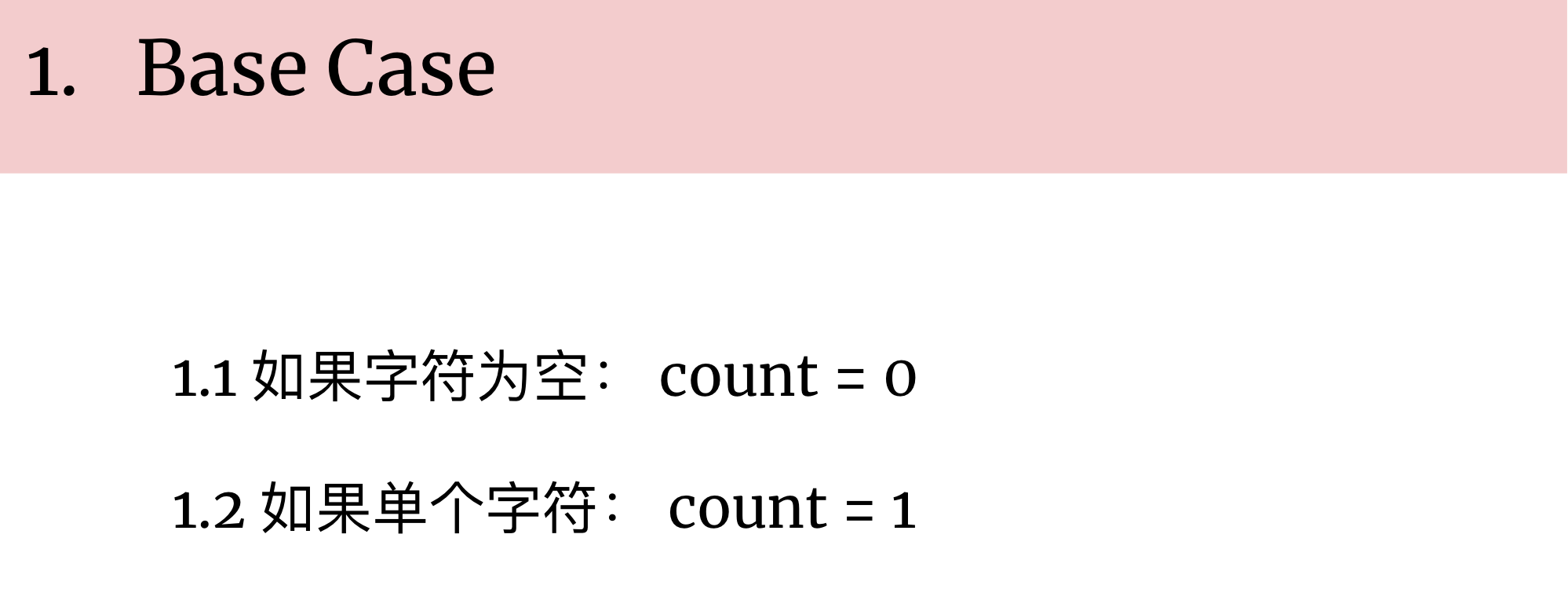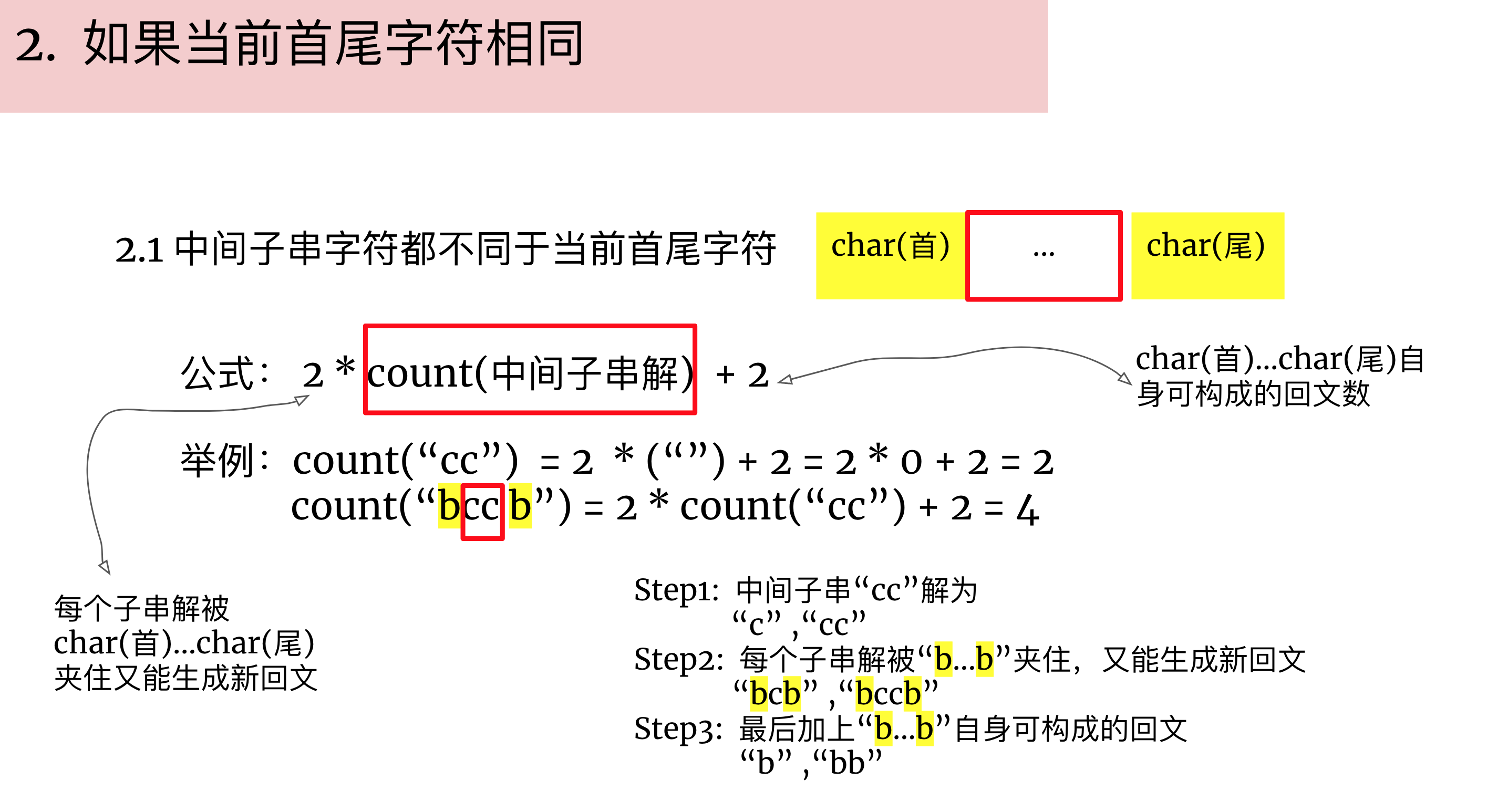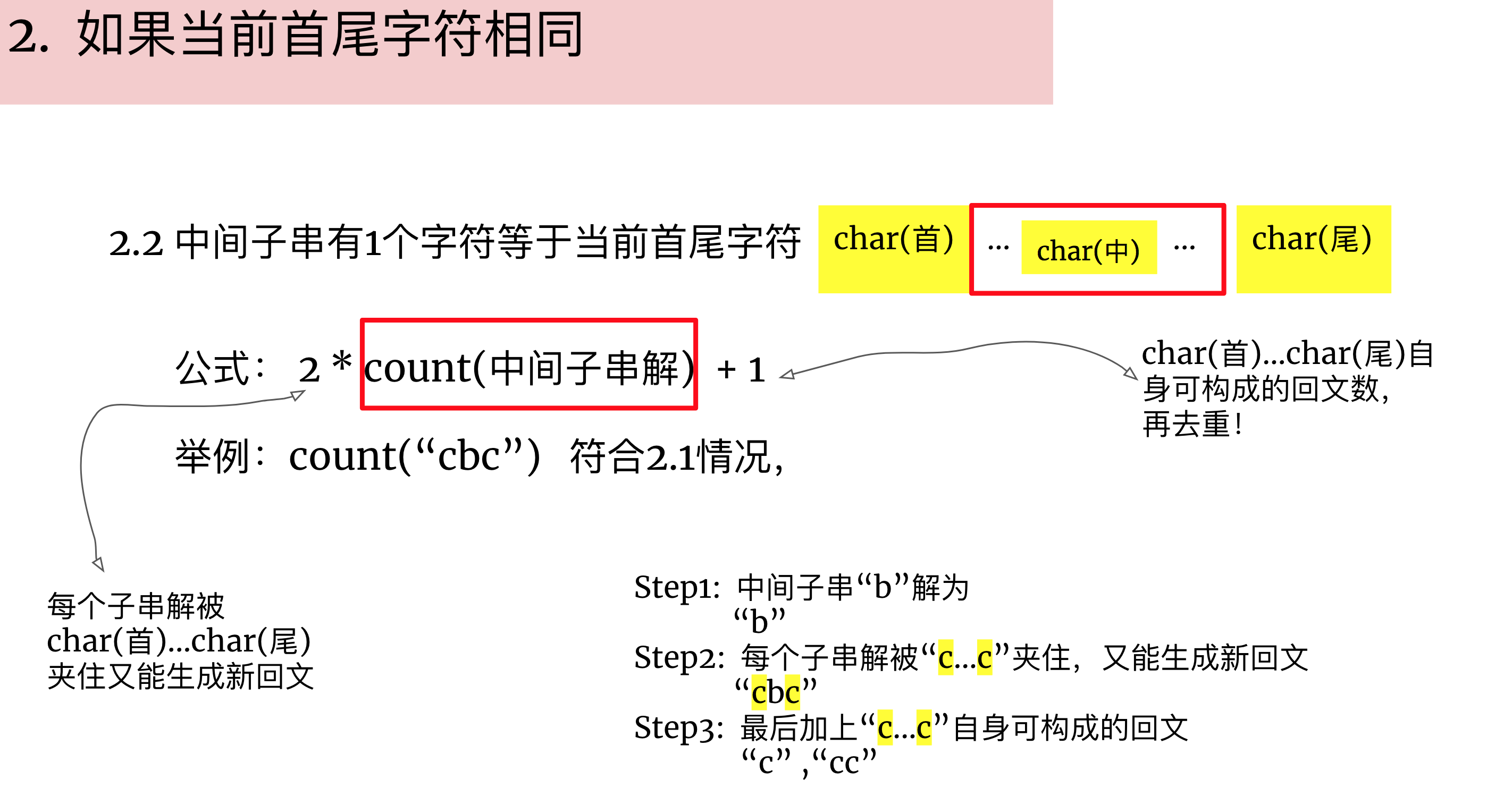
Example 1:
Input: S = 'bccb' Output: 6 Explanation: The 6 different non-empty palindromic subsequences are 'b', 'c', 'bb', 'cc', 'bcb', 'bccb'. Note that 'bcb' is counted only once, even though it occurs twice.
Example 2:
Input: S = 'abcdabcdabcdabcdabcdabcdabcdabcddcbadcbadcbadcbadcbadcbadcbadcba' Output: 104860361 Explanation: There are 3104860382 different non-empty palindromic subsequences, which is 104860361 modulo 10^9 + 7.
Note:
- The length of
Swill be in the range[1, 1000]. - Each character
S[i]will be in the set{'a', 'b', 'c', 'd'}.
题意:
计数不同的回文子序列的个数
Solution1:DP







code
1 /* 2 Recursion with memoization 3 Time complexity: O(n^2) 4 Space complexity: O(n^2) 5 */ 6 7 class Solution { 8 private int[][] memo; 9 // requirement: "return that number modulo 10^9 + 7" 10 private static final int kMod = 1000000007; 11 public int countPalindromicSubsequences(String S) { 12 int n = S.length(); 13 memo = new int[n][n]; 14 return count(S.toCharArray(), 0, n - 1); 15 } 16 17 private int count(char[] s, int i, int j) { 18 if (i > j) return 0; 19 if (i == j) return 1; 20 if (memo[i][j] > 0) return memo[i][j]; 21 // 根据题意,count结果可能很大,用long更保险 22 long result = 0; 23 // 当前首尾字符相同 24 if (s[i] == s[j]) { 25 // count(中间子串解) *2 26 result += count(s, i + 1, j - 1) * 2; 27 int l = i + 1; 28 int r = j - 1; 29 while (l <= r && s[l] != s[i]) ++l; 30 while (l <= r && s[r] != s[i]) --r; 31 // case1: 中间子串的字符中,都不同于当前首尾字符 32 if (l > r) result += 2; 33 // case2:中间子串的字符中,有1个字符等于当前首尾字符 34 else if (l == r) result += 1; 35 // case3: 中间子串的2个首尾字符,等于当前首尾字符 36 else result -= count(s, l + 1, r - 1); 37 } 38 // 当前首尾字符不同 39 else { 40 result = count(s, i, j - 1) 41 + count(s, i + 1, j) 42 - count(s, i + 1, j - 1); 43 } 44 // to avoid stack overflow 45 memo[i][j] = (int)((result + kMod) % kMod); 46 return memo[i][j]; 47 } 48 }